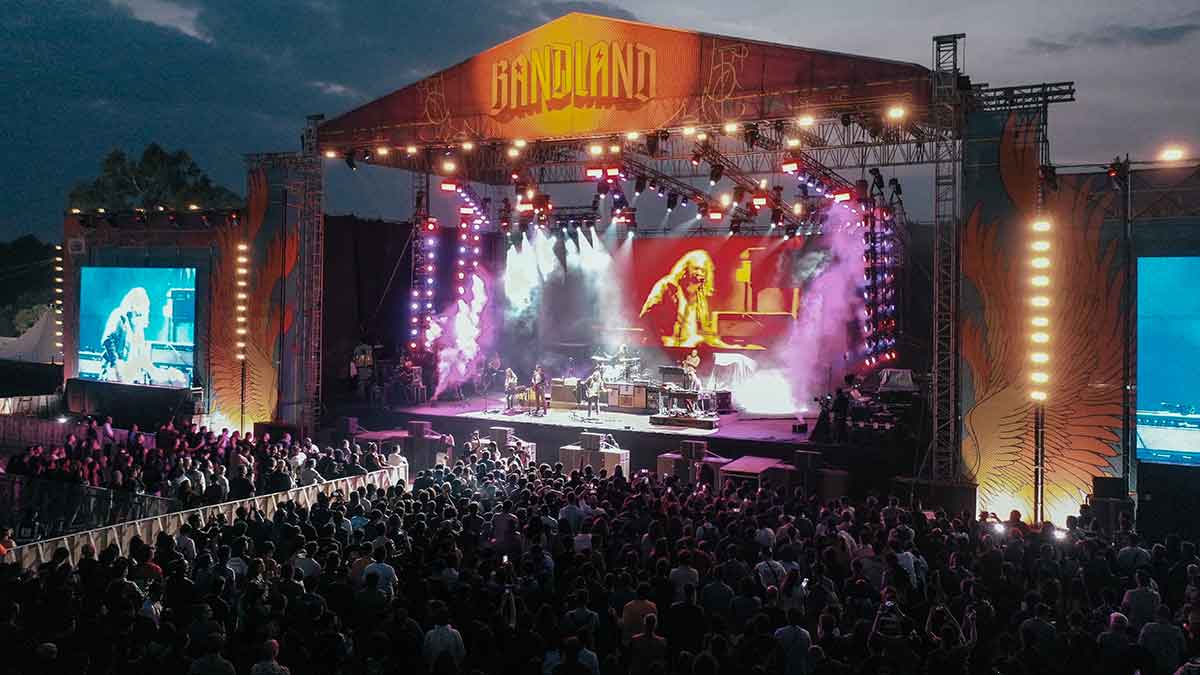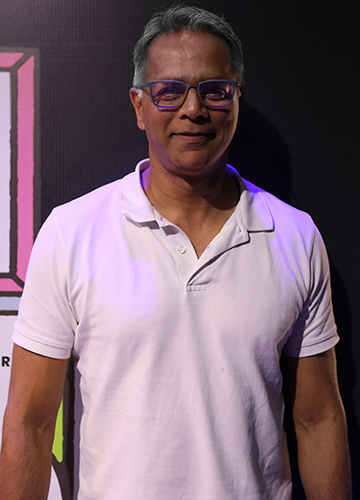It was supposed to be an ‘adventure of a lifetime’ for Deepali Taneja. The academician from Delhi and her friends had made meticulous plans to buy tickets to the much-anticipated live concert by the British rock band Coldplay. “My friends and I had logged in much before 12 noon, the time when the tickets went live, and we were in contact with each other in real time,” she said.
The day, however, spiralled down into chaos, as Taneja, along with around 1.3 crore fans, got into a ‘digital stampede’ while trying to get their hands on the 1.65 lakh tickets on offer. It first led to the ticketing site BookMyShow crashing, before many found themselves in queues running into some 10 lakh people. “I kept trying between my phone and laptop, but to no avail,” said Deepali. “Now, more than the feeling of disappointment, I feel a sense of being scammed. Despite my best efforts, I missed the opportunity!”
Even adding a third concert (they were supposed to do only two) did not help, as tickets, ranging from Rs2,500 to Rs35,000 were snapped up within minutes. Worse, many landed up on international ticketing sites or in the black market that charge multiple times the original price. While BookMyShow spoke of “issues from suspicious and malicious traffic,” former Uttar Pradesh chief minister Akhilesh Yadav said the tickets landing up in the black market “posed a serious challenge to governance”.
What the fiasco also proved was the coming of age of India’s live entertainment and ticketing sector. “India has emerged as a highly attractive and compelling destination for both domestic and international acts, with the burgeoning appetite for live entertainment events in the country,” said Owen Roncon, chief operating officer (live events) of BookMyShow, the organiser of the Coldplay event and many other high-profile live events.
According to a report by the Federation of Indian Chamber of Commerce, the live events sector generated nearly Rs9,000 crore in revenue last year, and it is estimated to hit Rs14,300 crore by next year.
While Coldplay and other big events like Lollapalooza (a multi-act music festival scheduled for winter) and Punjabi superstar Diljit Dosanjh (sold out in minutes) may be the poster boys of the live entertainment sector, concerts are just one aspect of it. The live events business market ranges anything from theatre to stand up comedy to dance, literary events and, of course, sports.
And they are all on fire. If the IPL cricket franchise opened up the true scope of what a well-marketed live event can earn, those from fields as varied as literature and comedy are learning the lessons, and raking it in. Jaipur Literature Festival makes its moolah from sponsorship, but it recently went ticketed, more in an effort to cut down the number of attendees. One of the most sought-after outings this monsoon across Indian cities were candlelight concerts, where musical performances took place in Instagram-worthy backdrops.
The rise of standup comedy as a celebrity career encapsulates the trend of live events like no other. Comedians like Kanan Gill and Danny Fernandes count their social media followers in hundreds of thousands, and are on tour with their ticketed standup acts every other week. Earlier limited to comedy clubs and small bars, they are now increasingly playing to sold-out auditoriums. Vir Das’s controversial act in New York last year made it into a Netflix show, and bagged an International Emmy.
“Indians were exposed to different kinds of entertainment that crawled into our homes through phones and televisions during Covid, and they portrayed western world trends like standup comedy. Suddenly, the audience has woken up!” said Ambika Prasad Nanda, associate professor, Jagdish Sheth School of Management (JAGSoM), Bengaluru.
“Covid is an obvious reason, but it does not stop there,” said Nanda. “Many migrants to metros come from tier 2 and tier 3 cities where we traditionally have had a culture of going out for music and dance beyond films―from Ramnavami plays to Natya Shastra, our classical dances and many other folk forms. In the big city, they don’t usually get an opportunity to indulge in it, busy as they are dealing with work and the traffic snarls. And now they are looking for that connection which these experiences offer.”
BookMyShow says last year saw demand for live entertainment surging 82 per cent, with a 2.3 times increase in premium event-goers. “Our mission has always been to democratise access to entertainment, making it effortless and accessible,” said Roncon.
BookMyShow straddles the ticketing business, both events and cinemas, with an estimated 75 per cent market share. That has brought with it its fair share of criticism―detractors point out to the high ‘convenience fee’ the entity charges for tickets, because of its virtual monopoly.
It could well change soon. Competition is on the horizon with food aggregator Zomato acquiring the also-ran in the field, Paytm Insider. “Zomato sees the going-out business as a combination of multiple categories with strong network effects,” said its founder Deepinder Goyal. “The idea is to drive profitability at a combined level while allowing for different sub-categories to operate at different margin profiles.”
“For Zomato, this acquisition highlights its focus on the ‘revenge entertainment’ segment at a time when OTT players offer world entertainment at the customer’s fingertips,” said Srinivas Reddy, assistant professor (marketing management) at the T.A. Pai Management Institute, Manipal. While it could run into hurdles like BookMyShow’s binding agreements with multiplex chains, there are many other models it could work with, like smaller chains, single-screen theatres and non-film events. It can use its vast distribution network to go into smaller towns faster with value adds.
Zomato has already announced concerts by pop stars Dua Lipa and Bryan Adams to match BookMyShow’s Coldplay, and Shawn Mendes and Greenday at Lollapalooza.
Live concerts are big-ticket events. The revenue from the Coldplay concerts in Mumbai could be over Rs100 crore, while the consumer spending on travel, food and stay will be in multiples of that. Unsurprisingly, travel and hospitality majors are also looking at this in a big way. “The Indian travellers’ mindset has changed, they now seek experiences that are inspired by what they see, follow and admire,” said Santosh Kumar, India country Manager of Booking.com.
Globally, live events have been recognised to be game-changers for the economy. Singapore, which exclusively hosted American pop star Taylor Swift’s Eras World Tour in the region (much to many neighbours’ chagrin), claimed that its GDP growth of 2.7 per cent in the April-June period was in part due to the frenzy over the concert.
When pop queen Madonna closed out her Celebration tour with a free concert in Rio de Janeiro’s Copacabana beach this summer, Brazilian authorities spent huge money (equivalent of Rs30 crore) in security and arrangements for the 16 lakh people who turned up. The benefit? With 170 extra flights bringing in fans from around the world who not only attended the concert but stayed, ate and drank, Brazil is estimated to have earned nearly Rs500 crore equivalent in taxes and ancillary revenues. There is a lesson in it for India as its nascent live events scene comes of age.



